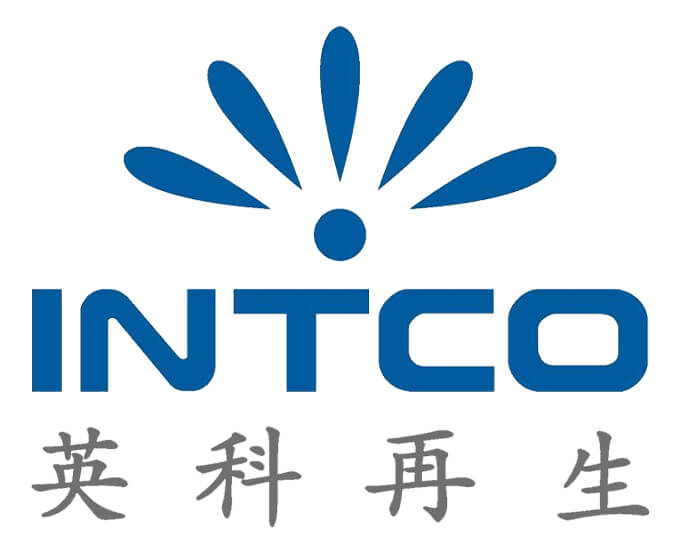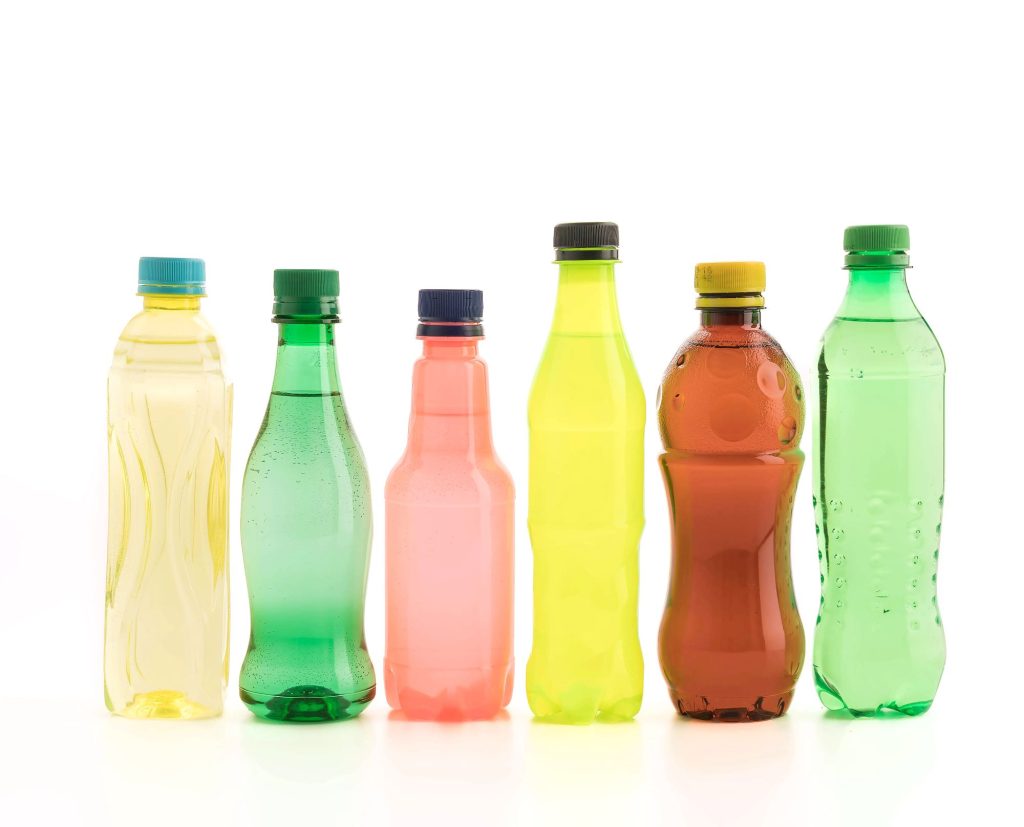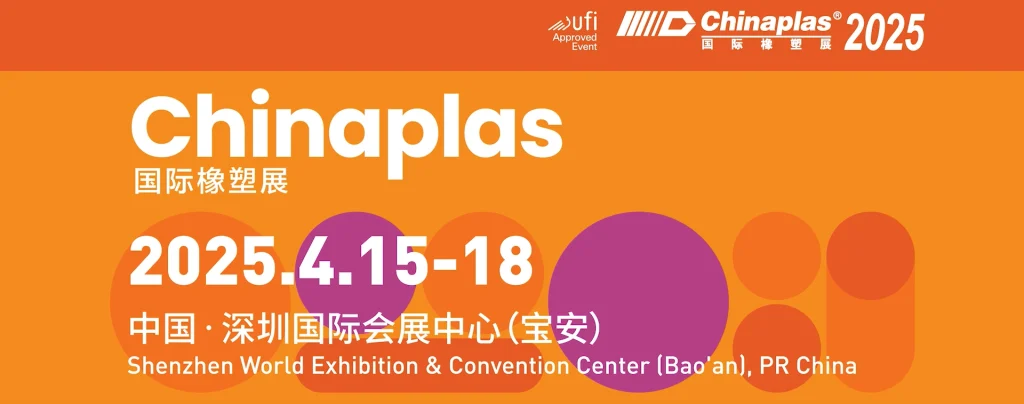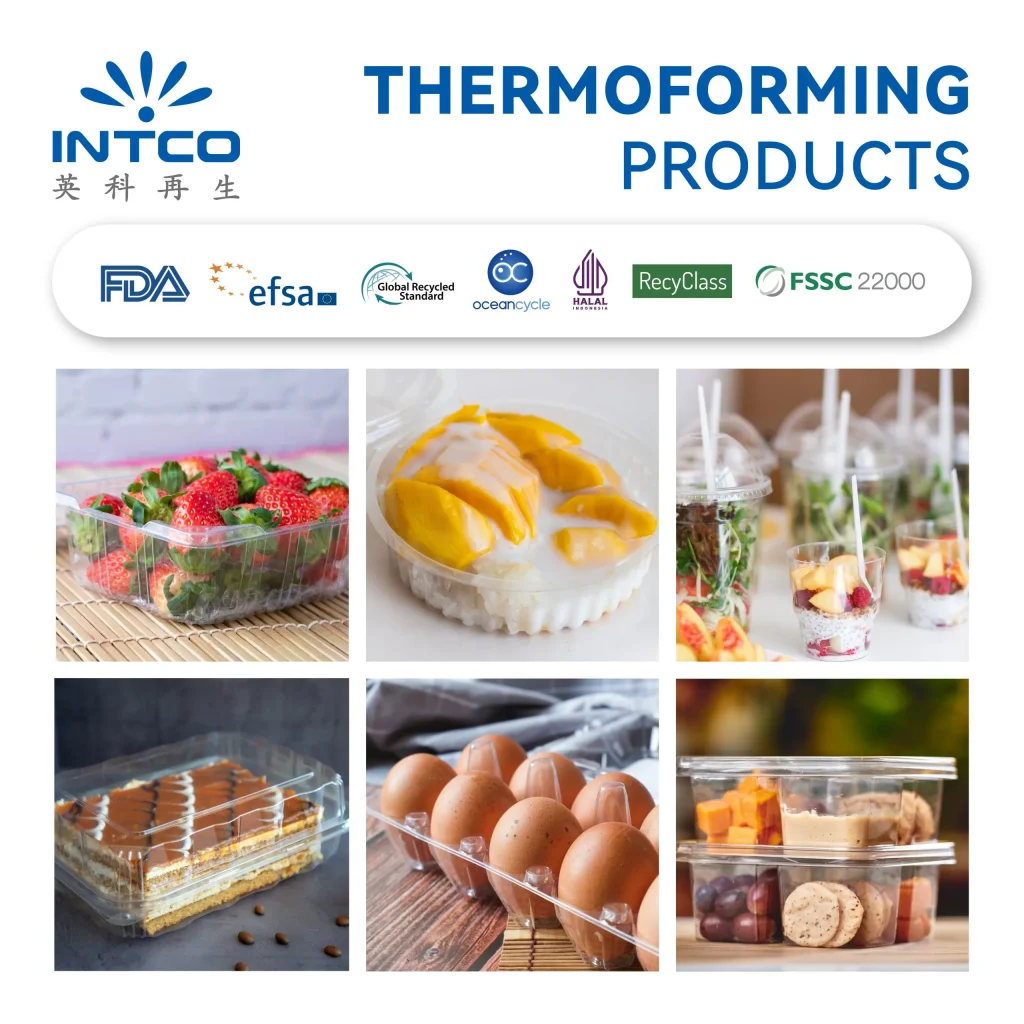What Are PET and rPET?
PET, or Polyethylene Terephthalate, is a widely used plastic with a variety of applications in industries such as bottle manufacturing and food packaging. Its clear appearance and durable yet lightweight nature make it popular. However, its manufacturing process raises significant environmental concerns due to the substantial energy consumption and emissions of pollutants involved.
By utilizing consumer PET waste in its production process instead of virgin resin production, Intcoplastic creates high-quality recycled PET (rPET) products that comply with strict regulations. This approach promotes a sustainable circular economy, conserves resources, and reduces landfill waste.
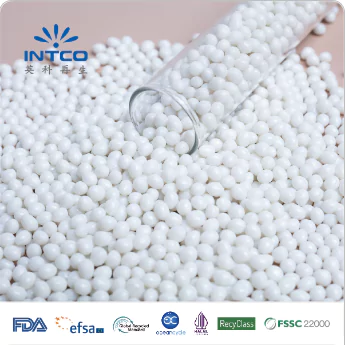
How Do PET and rPET Differ in Terms of Performance?
In the debate, over the toughness and longevity of PET versus rPET materials used in manufacturing processes today, rPET may have an edge owing to the way it is produced initially. However recent progress in recycling methods has greatly enhanced the characteristics of rPET making it a strong contender, against virgin PET. Intcoplastics specialized rPET resin chips are crafted to match the viscosity and melting points of regular PET resulting in durable final goods.
Reusability and Recycling Efficiency
Both PET and rPET can be recycled; however, rPET stands out for its sustainability benefits. The production of rPET reduces the requirement, for resources by using recycled materials in existence. Choosing Intcoplastic’s products made from rPET helps support a recycling process that decreases dependence on resources and encourages reusability. This improved recycling efficiency does not help the environment. Also supports global sustainability objectives. Making rPET a choice, for conscious consumers and producers alike.
Is rPET More Environmentally Friendly than PET?
The energy consumption and emissions associated with the production of rPET and PET vary significantly from one another. Making virgin PET entails extracting petroleum and refining it before polymerizing it into resin. A resource process that leads to greenhouse gas emissions. On the other hand, the manufacturing of rPET helps to reduce these effects significantly by repurposing existing plastics resulting in lower energy usage and fewer pollutants being released into the environment.
Moreover, the process of turning consumer PET into rPET requires less extraction of raw materials helping to conserve natural resources. Opt for rPET items, such, as those offered by Intcoplastic to play a role in reducing the impact of plastic production. Intcoplastic places importance on maintaining sustainability, in its rPET resin chips guarantee that your selections support preservation and cut down on emissions linked to manufacturing methods.
Waste Reduction Potential
The shift, from PET to recycled rPET marks an advancement in waste management and reduction efforts. rPET comes from plastic. Plays a crucial part in reducing landfill waste and supporting a more sustainable economy. Conventional PET items add to the increasing pollution issue that harms life and ecosystems. On the other hand, using rPET helps in plastic away, from landfills thus extending the lifespan of current materials.
Intcoplastics’ dedication to premium rPET products highlights the impact of your choices on sustainability. Utilizing rPET involves repurposing used materials which helps in reducing the effects of waste and minimizes the necessity, for creating new materials from scratch. By incorporating rPET into your production methods you are contributing to waste reduction and endorsing eco practices with actions.
Analyzing the Cost Differences between PET and rPET
The price differences, between made PET and recycled PET (rPET) are impacted by factors such as the availability of raw materials and market demand along with production methods used in the process. Creating traditional PET usually faces changes in petroleum prices that directly impact the expenses. However, rPETs usage of recycled materials often leads to a pricing scenario since it’s less affected, by unpredictable fossil fuel markets.
Furthermore, Intcoplastics rPET items are crafted to enhance manufacturing efficiency enabling businesses looking for materials to cut expenses. Companies using rPET can enjoy savings, in waste disposal charges. Improved brand image, leading to an edge in the market, with cost-effective positioning. In the end, opting for rPET can bring about lasting advantages and contribute to price stability.
Cost Implications for Manufacturers
Manufacturers face a decision when it comes to choosing between PET and due, to the cost implications involved in the process. Although the upfront cost of procuring rPET may seem higher initially to some businesses or organizations at a glance; however looking at the picture and considering its long-term advantages can change this perspective. By selecting rPET, over PET for your manufacturing needs or operations; you are actively participating in promoting an approach that not only helps in reducing future expenses related to waste disposal and meeting environmental regulations but also contributes positively towards a greener environment.
Furthermore incorporating rPET items, from Intcoplastic into your supply chain could enhance customer loyalty. Open up market possibilities. As a result of increasing awareness companies that promote sustainability enjoy feedback from consumers gaining a competitive advantage. To sum up, although both alternatives have associated expenses opting for rPET appears to be a decision for manufacturers striving for sustainability, without compromising viability.
How Can Businesses Transition from PET to rPET Successfully?
Moving from PET to rPET necessitates a strategy to smoothly incorporate it into operations. The first step involves evaluating manufacturing processes to pinpoint where rPET can be incorporated with interference. For example, a thorough examination of production lines to accommodate rPET resin chips can aid in a transition, by making adjustments for machines primarily meant for virgin PET. Educating employees, about the advantages and management of rPET also holds significance it fosters a sustainable company culture.
Once you’ve set up your integration plans in place for the team, at Intcoplastic which provides a variety of top-notch rPET items it’s crucial to establish lines of communication with them. Having a grasp of the features and capabilities of these rPET products will enable companies to make decisions. Additionally conducting test runs using rPET materials can be beneficial as it allows businesses to assess the viability of usage before diving in completely. This gradual method does not help in reducing risks. Also demonstrates the company’s dedication, to sustainability.
Long-term Benefits for Organizations
Switch to using recycled PET (rPET) offers advantages in the run just saving money upfront and helping the environment right away investing in sustainability can boost brand loyalty and reputation, for companies as customers are more likely to support businesses that show a dedication to eco-friendly practices which can drive sales and expand market share among environmentally conscious consumers.
Moreover cutting down on the waste linked to producing PET and utilizing recycled materials sourced from places such, as Intcoplastic companies can notably diminish their impact. This dedication not only helps protect the environment but also fits well with regulations focused on lessening plastic pollution. In the long run, these approaches lay a strong groundwork, for improving operational effectiveness and reducing costs ultimately positively impacting a company’s financial performance.
Intcoplastic‘s Commitment to Sustainability with PET and rPET products
Intcoplastic stands out as a player, in supplying rPET and PET items with a focus on promoting sustainability within the industry sector. They are committed to embracing practices by not only offering dependable rPET resin chips but also introducing creative initiatives to minimize ecological footprints. By sourcing consumer materials thoughtfully into plastic guarantees top-notch quality and efficiency in their products while contributing to global sustainability campaigns. With cutting-edge recycling techniques at its disposal, the company leads the way, in providing goods that adhere to safety and regulatory protocols.
Range of rPET products Offered by Intcoplastic
Intcoplastic provides a selection of top-notch rPET items tailored to meet industrial requirements. Their food-grade certified rPET resin chips showcase the ingenuity and security making them ideal, for manufacturing beverage bottles and food containers. Additionally, the company offers made rPET sheets with light transmission and strong mechanical properties, suitable, for industries needing robust and secure packaging options.
By incorporating Intcoplastic’s range of rPET items, into their operations companies can be certain that they are utilizing materials that help decrease pollution while upholding the quality of their products effectively. The diverse selection of product features provides opportunities for tailored solutions enabling producers to include rPET, in their procedures and address consumer needs.
Benefits to Consumers and the Environment
Choosing rPET items from Intcoplastic not only supports eco-friendly practices but also aligns with the preferences of customers who prioritize sustainability. By using recycled materials in their products, companies can significantly reduce their environmental impact, demonstrating a commitment to minimizing waste and pollution. This decision resonates with customers, enhancing brand appeal and fostering loyalty.
Additionally, utilizing recycled PET (rPET) contributes to establishing a circular economy by reusing waste and reducing reliance on new materials. People can be confident that their choices are contributing to environmental improvement and promoting eco-friendly manufacturing practices. Intcoplastic’s dedication to offering high-quality rPET products streamlines the decision-making process for companies and individuals, enabling them to make choices that align with both environmental and business objectives.
